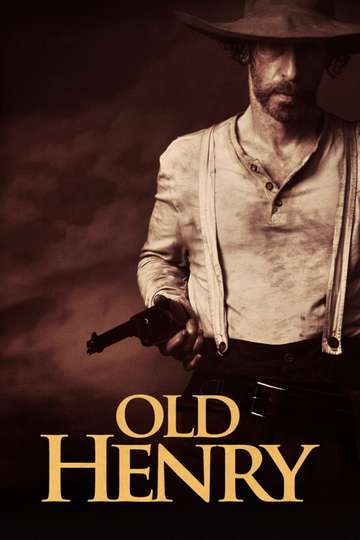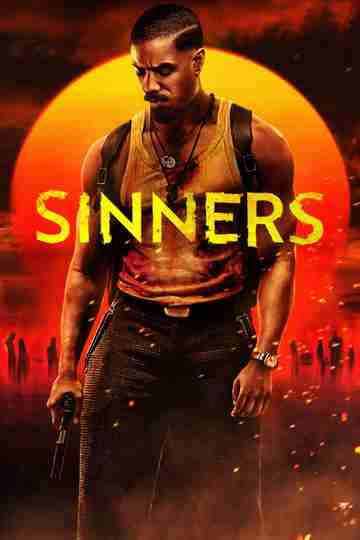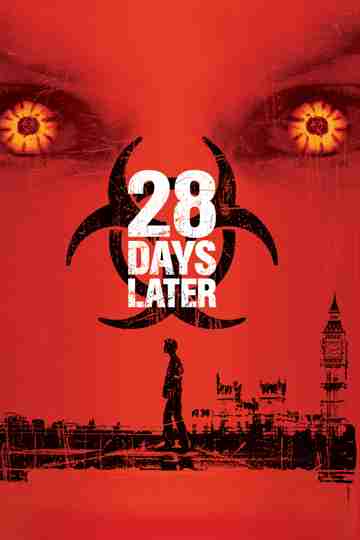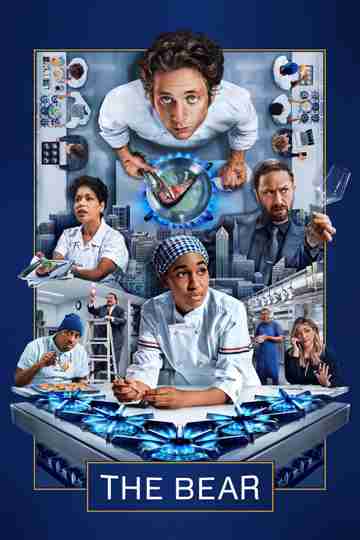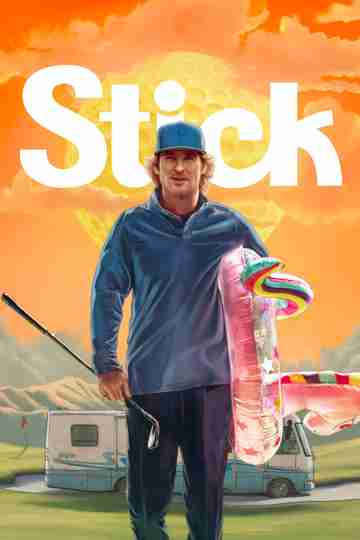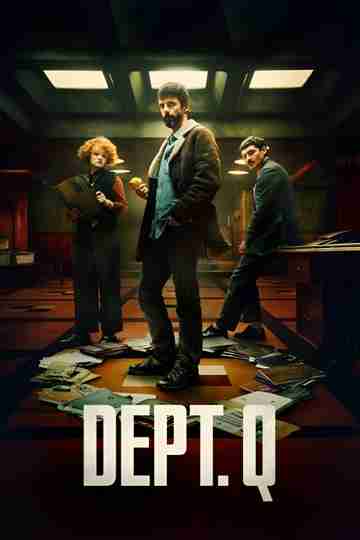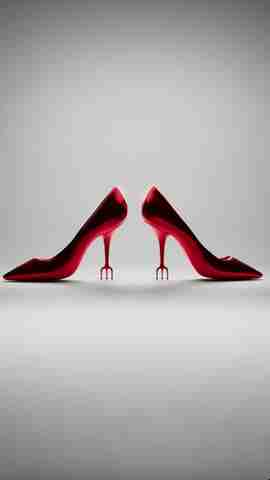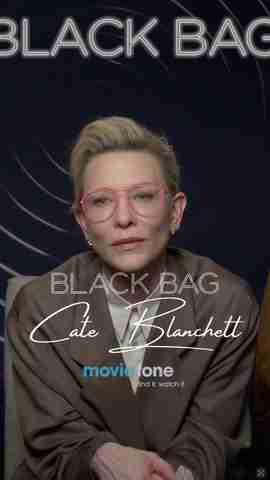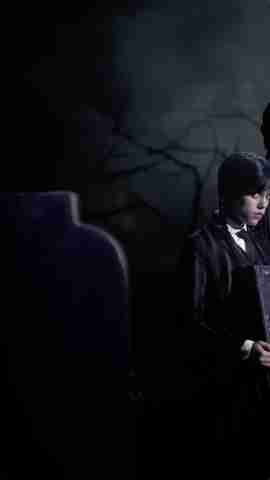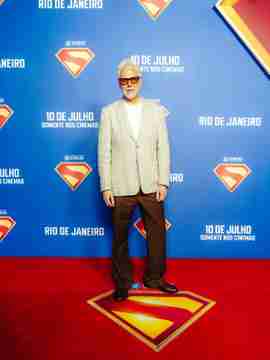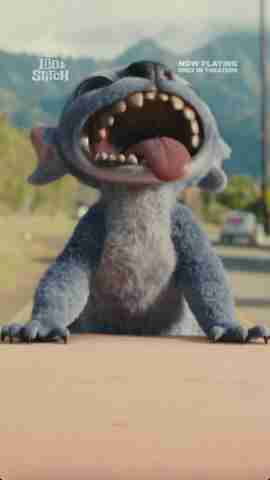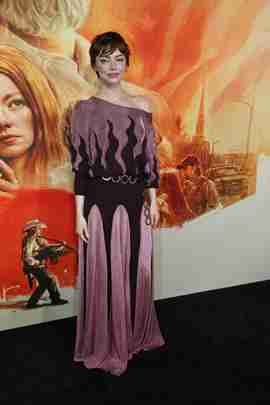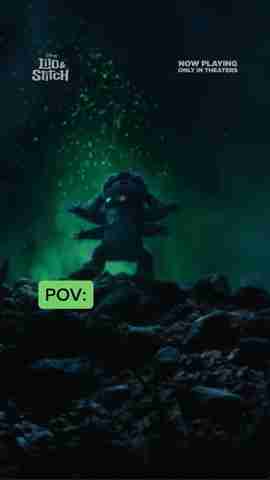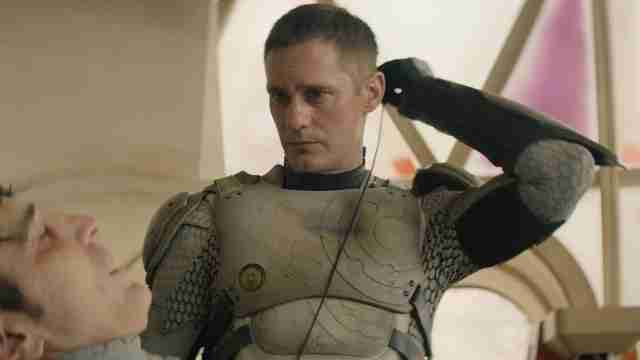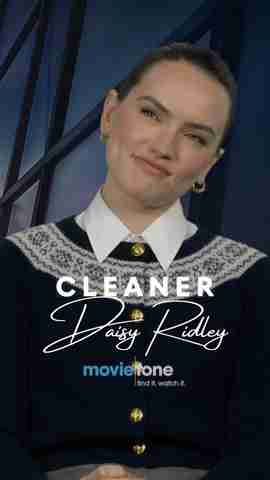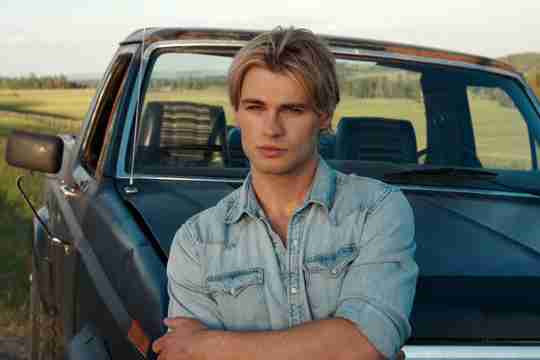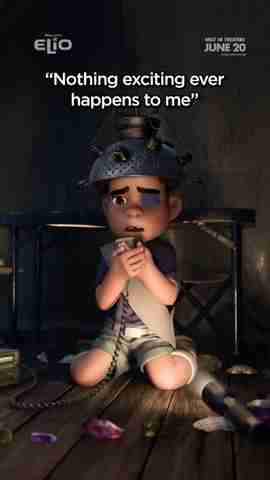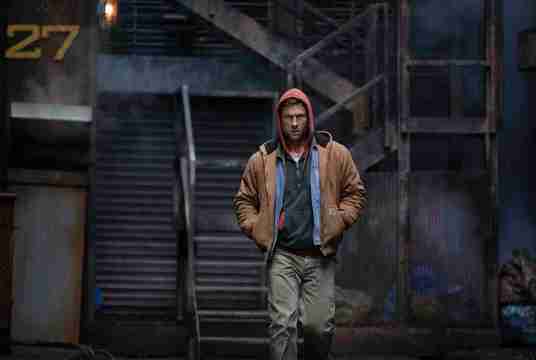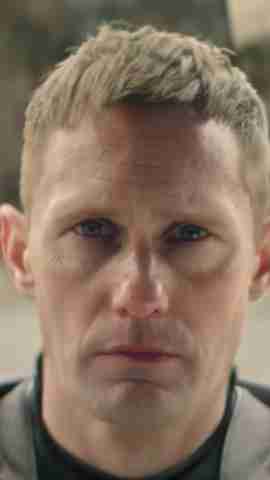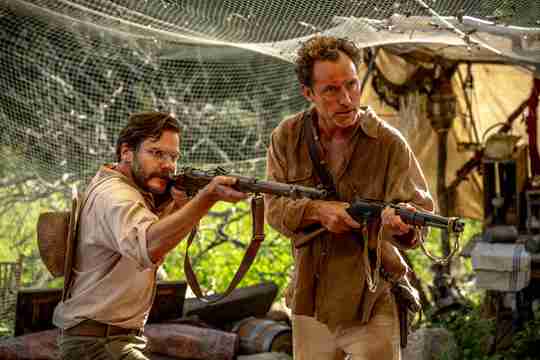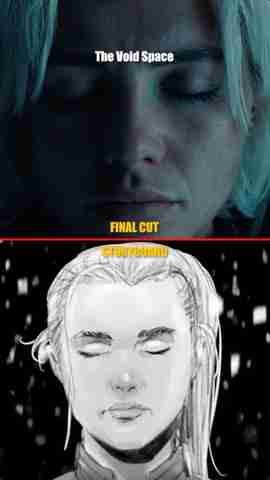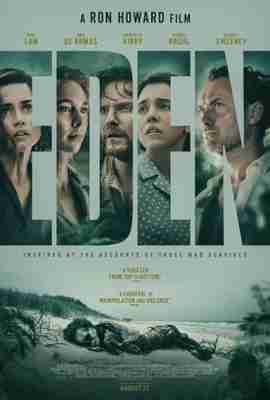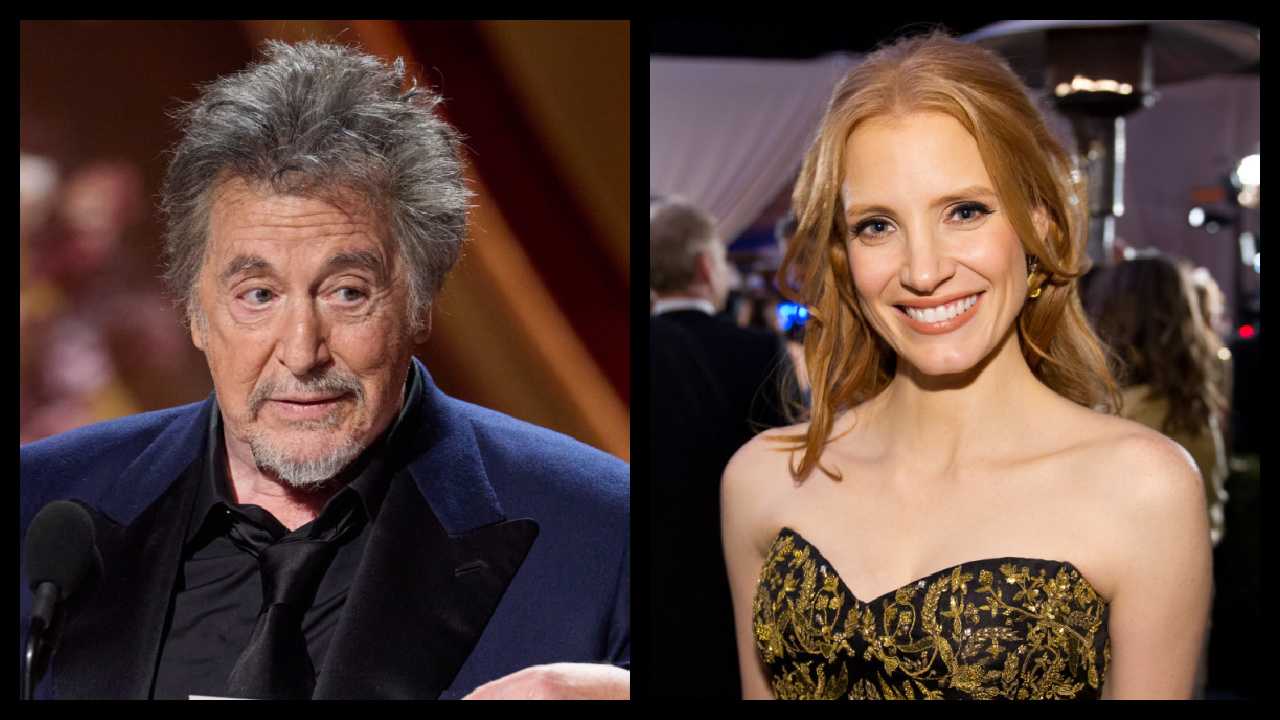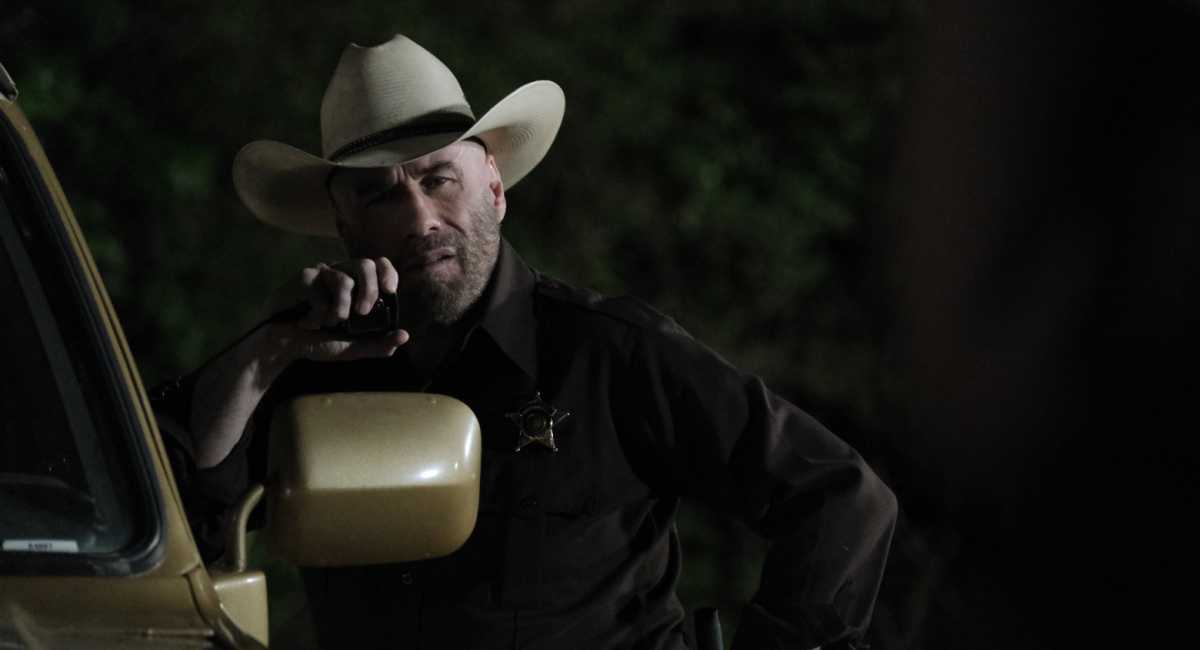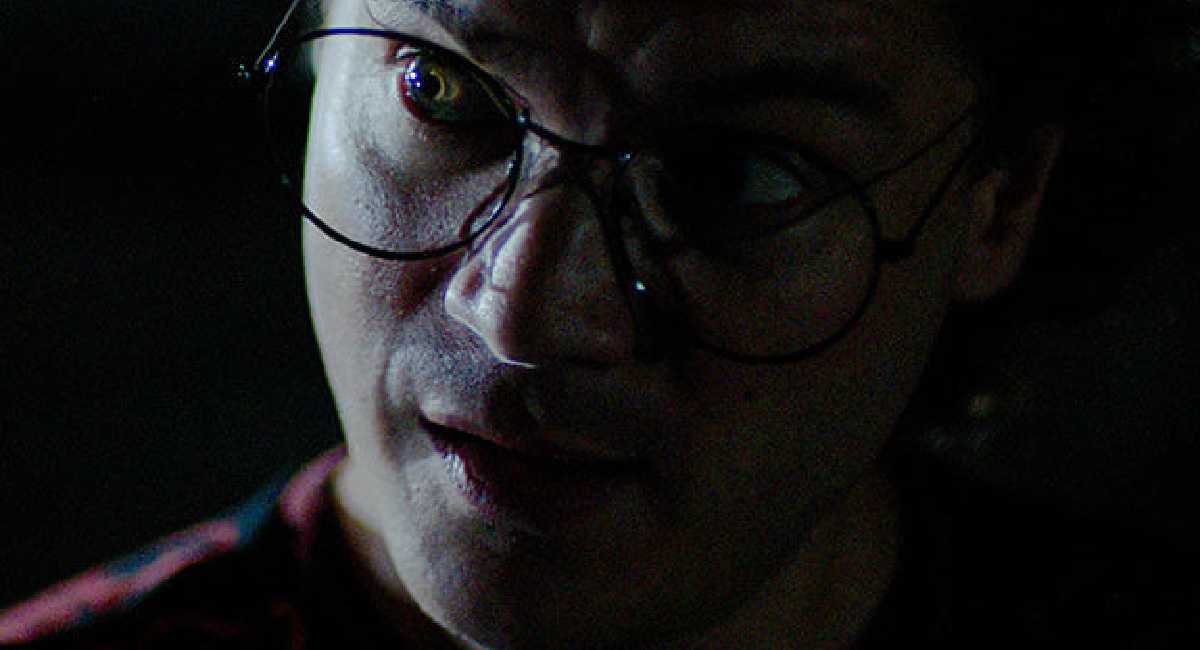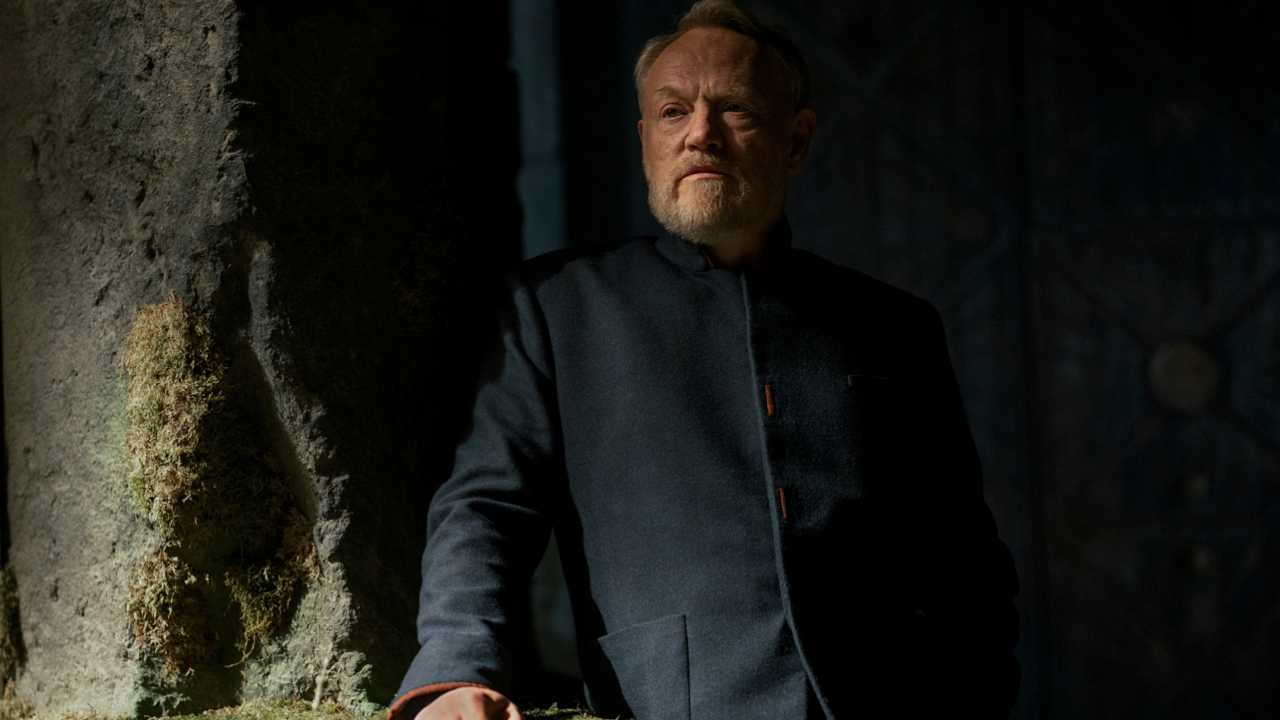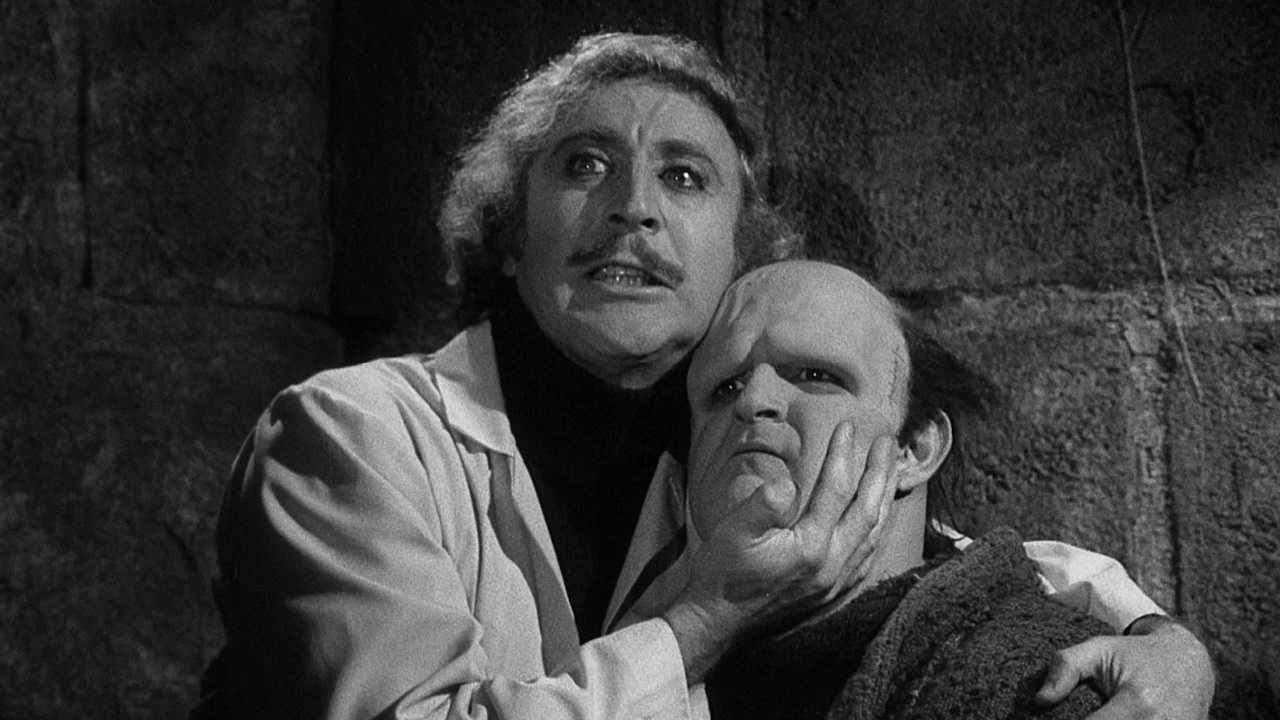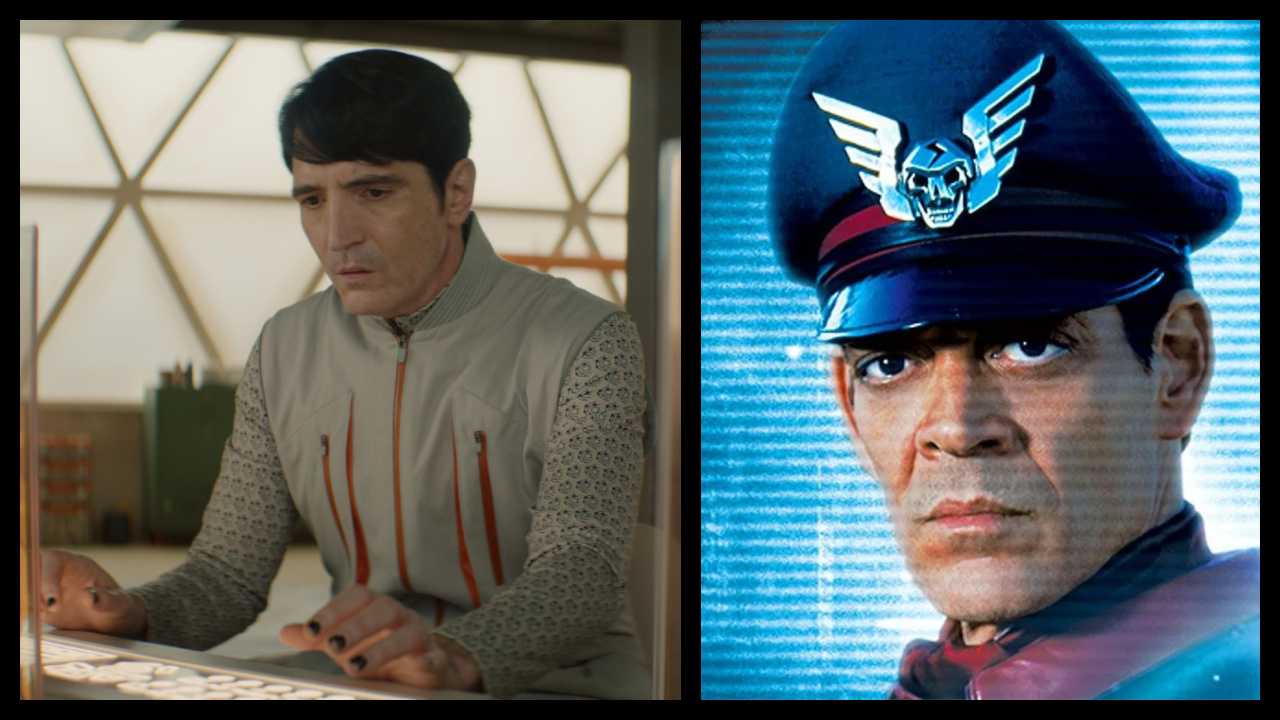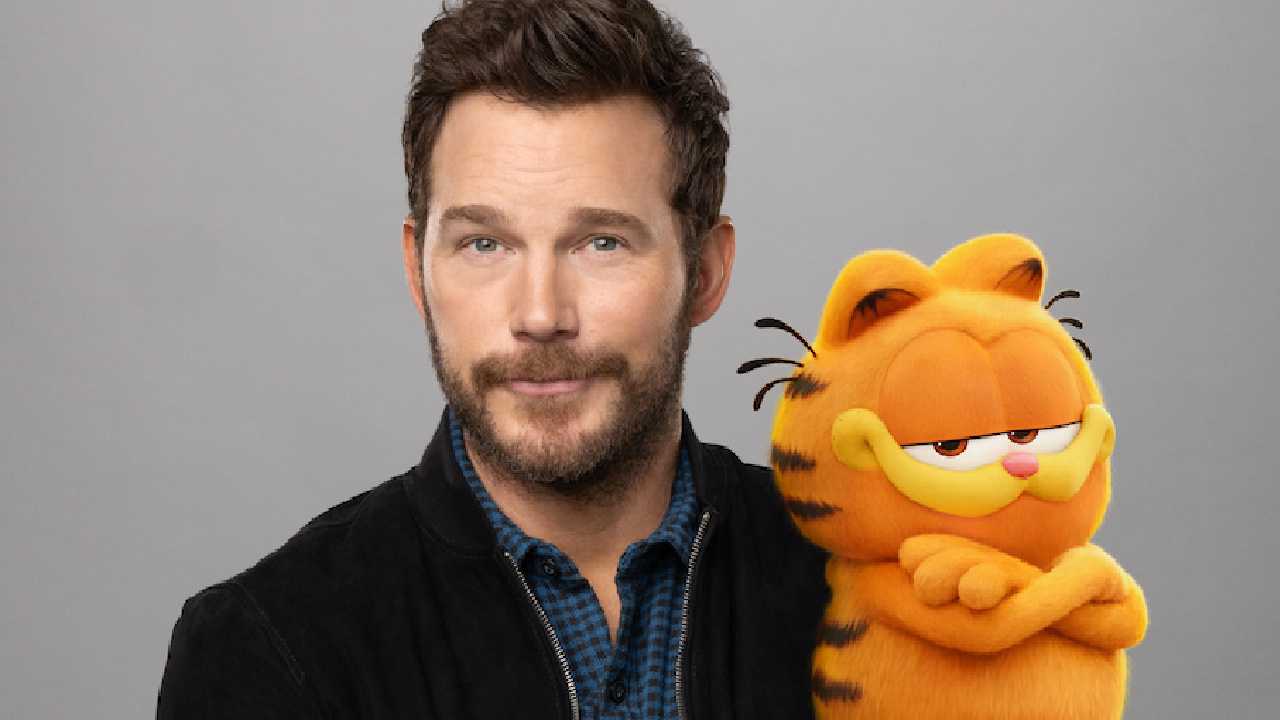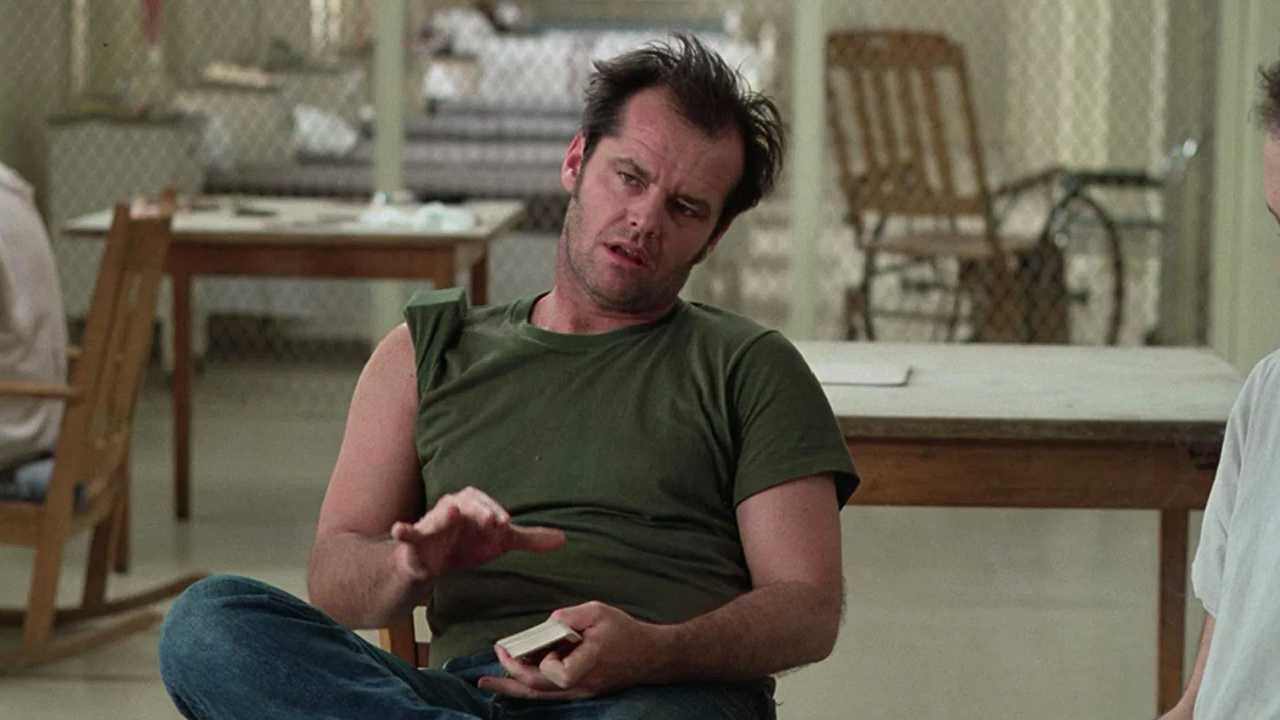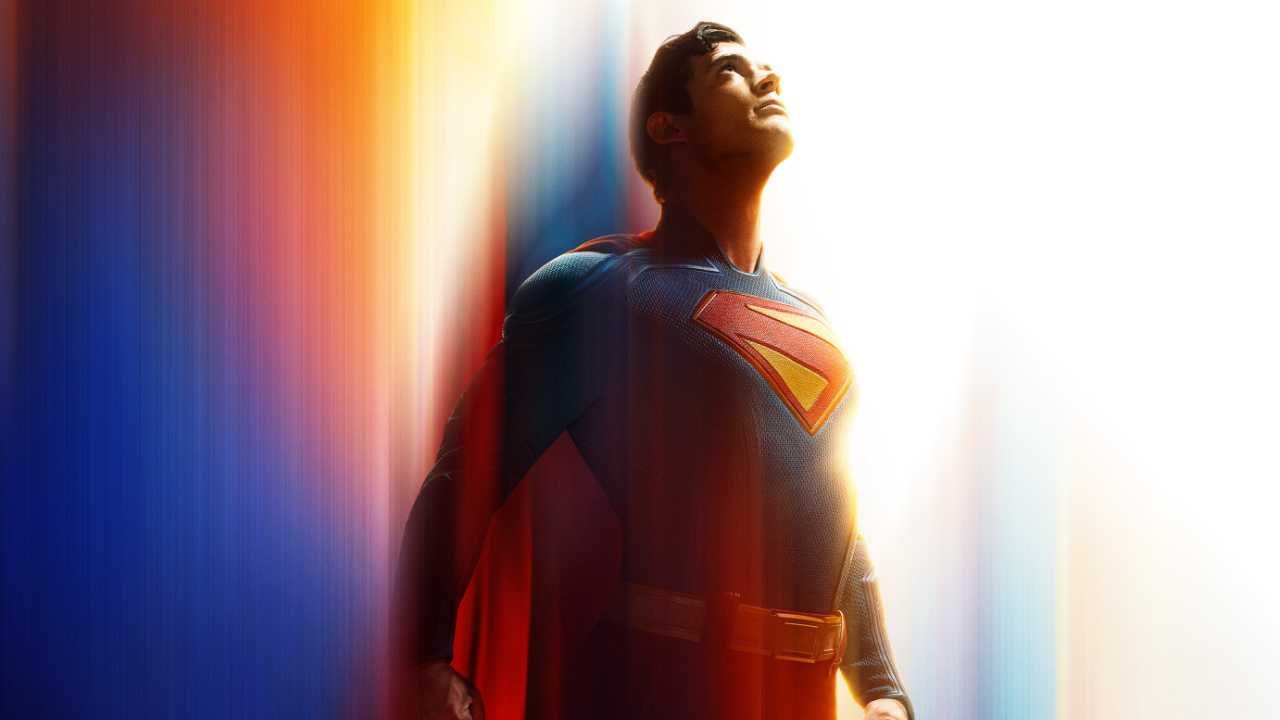‘Old Henry’ Star Tim Blake Nelson and Writer/Director Potsy Ponciroli Talk About Their Grim New Western
The actor and the writer/director talk about shooting the whole movie in one location, and how COVID protocols affect indie productions.
In the new western, ‘Old Henry,’ Tim Blake Nelson plays Henry, an Oklahoma farmer who has lost his wife, but still works his land with his teenage son. Henry has a past he refuses to share with his son, but when a man on the run turns up on the farm, Henry won’t be able to keep his secret any longer if he hopes to keep his son safe. Nelson and the movie's writer/director Potsy Ponciroli spoke to Moviefone about their new movie.
First, Tim Blake Nelson talks about what drew him to the project and how he prepared.
Moviefone: How did you get involved in this to begin with?
Tim Blake Nelson: I was cooking dinner for my family and checked my email. And I had an offer to play Henry in a movie called 'Old Henry.' And I thought, "Wow, I have a son named Henry. That's kind of interesting." And then I thought, "And I'm being asked for the first time to play a character described as old." And I knew that day was coming, and I thought, "Well, all right, I'll have a look." And then was completely sucked in, mostly because it was a father and son story. But also, I love Westerns. And by the time I'd finished it, I wanted to meet the director. And he inspired only confidence. And so, I signed on.
MF: This is Potsy Ponciroli's first feature, unless I’m mistaken.
Nelson: It's his second feature, but it's very much... His first feature is a comedy, a really goofy, funny, but goofy comedy. So in terms of him making a Western, it actually might as well have been his first feature. And everybody has to have their first feature.
I'm interested more in a director's ambitions and my confidence that they're going to be able to pull off those ambitions, if the world of the film interests me, than I am in how many movies they've made. Because everybody had their first feature.
So Potsy wrote a really interesting script. And after meeting with him for about an hour and a half with his producer sitting beside him, and I became confident he was going to be able to pull this off in a really interesting way, that I could trust him to guide my performance, and that he was going to have the resources and wherewithal to pull off what he was hoping to. And he made an even better movie than I imagined he would.
MF: I'm curious as to how the script read. Because as viewers, we get hints at a mystery, but you get confirmation about that fairly late in the script. How soon did you figure it out while reading it?
Nelson: I never was ahead of the script. I knew that there was gravity in this man's past, and that he wanted to protect his son from making the same mistakes he had. And that's an impulse with which I'm familiar as the father of three boys, but I never suspected the extremes that eventually are revealed in the film.
MF: Where did you shoot this movie? Because I know it's set in Oklahoma, which I believe is your home state.
Nelson: I was born in Oklahoma and raised in Oklahoma to the age of 18. Originally, the film was set in another state. Then as Potsy and I worked on it together, on the script together, we decided to move it to Oklahoma. And then for a while, Potsy thought about shooting it in Oklahoma. But when he'd written the script originally, he had written it with this specific house in mind, in his own state of Tennessee, about an hour outside of Nashville. And he could never divorce himself from that concept.
And so thankfully, he called me up one day and said, "Look, we've scouted Oklahoma. And I believe in the impulse, we had to set it in Oklahoma, but I don't want to shoot in Oklahoma. I want to shoot in Nashville."
And to me, the writer director has the last word. It's Potsy's movie. And so I said, "Then we're shooting in Tennessee. Great." And I'm really glad that we did, because his initial impulse was right. It was the perfect location. And he brought in this wonderful production designer, Max Biscoe, and his art director, a woman by the name of Ruby. And they turned this old homestead that was from the periods into a great set for us.
MF: There is a tone here that is not far off from say a horror movie, in that this vision of the Old West is filled with dangers and terrors. What was the tone like on set as you're shooting?
Nelson: We had very little time to shoot, which is always true with indie movies that are under-budgeted. So there was a seriousness of purpose, definitely. And I think, weirdly, that COVID has engendered more discipline on sets, because COVID protocols take time, and they take vigilance. And that permeates all other areas. And so, there's just a lot less goofing off than often can happen on movies.
People are more rigorous, more disciplined, and this movie absolutely needed that. It's also a very taciturn movie, and it's a lean film. It never wastes a moment. It just starts like a house on fire and just goes until it's nothing but embers. And that also focused us. There was a leanness to the approach in making it. No bullshit.
MF: There's a lot of physicality in this role for you, especially with the farming work. Does that require training on your parts? Because I'm also curious, what are you doing when you're dressing that hog? What was that like?
Nelson: Well, I researched it and trained doing that, really butchering, which I've done on another movie within that same year. And so, luckily, I had some knowledge of it, although not this sort of field dressing that we do in Old Henry, so that had its own new set of demands. But yes, it's a very physical role.
Luckily, I had a lot of time to prepare for this movie, and I used it. I got down to Nashville very early to shoot. And in the months leading up to it, I was given a lot of the props that I was going to use in the movie, like the guns in particular, to work with in my apartment in New York, as contrapuntal as that is.
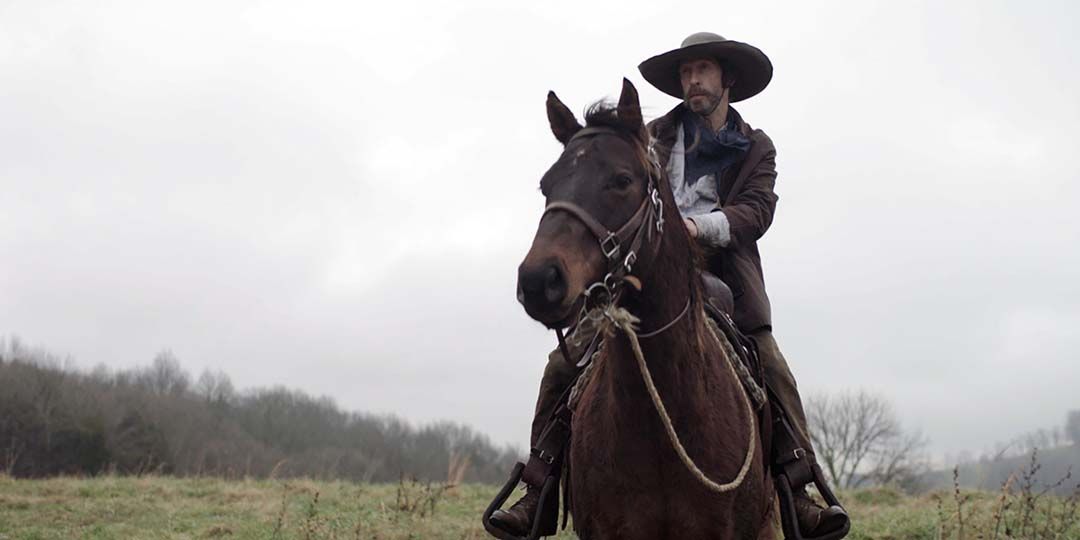
Tim Blake Nelson in 'Old Henry'
And I've done Buster Scruggs, the Coen brothers movie, as well, which had a lot of gun play in it. So there was a good foundation underneath it. And all the other stuff, I got in... made sure I was in really good shape and was never going to tire of stuff during the movie and got there early enough to practice everything every day for several weeks, so the guy looked right,
MF: My last question, a little bit of a lighter one. Is Trace Adkins' voice that deep on set? Because he sounds somewhere between Sam Elliott and James Gammon.
Nelson: That is the real Trace Adkins. I've got to say, I was anxious about a country music star, and I love country music, playing that role. And I couldn't be happier with the results. He was incredible. And he's also a real gentleman. I think he's wonderful in the movie.
Director Potsy Ponciroli talks about the location that inspired the movie.
Moviefone: What inspired this story for you?
Potsy Ponciroli: I own a production company, Hideout Pictures, and we have a few other projects going and we were actually scouting on this property for a different project. So, we were walking through this 2,500 acres of land and came across the house that you see in the film. We added on... The guy that owns the property, he actually tore down an old barn so we could build that porch and the hog pens and stuff. But the house was a 100+ year old house and it just was kind of sitting there down in this valley. I live in the city suburbs of Nashville, so country's a little bit of a scary place, especially when it gets dark. So that, kind of sitting there I was like, what would I do if a guy came over the hill and then what if I let him in? It kind of one thing led to another, so it really all stemmed from that property.
And so being able to shoot it there and in coming full circle that was really, that property was such an amazing location that it really came through well on the screen.
MF: Yeah, I was thinking when I was watching the movie that there's a tension early on in the film that almost feels like a horror movie. And that wild country is scary. I guess where one director, like a Sam Raimi looks at a cabin in the woods and comes up with 'The Evil Dead'...
Ponciroli: Right.
MF: You're giving us this terrifying Old West story.
Ponciroli: Yeah. And that was a piece because John Matysiak, my DP, 'The Witch' was one of his favorite movies. So he was like, "Watch the way," I was like, "Yep." Having those moments where it... Because it is scary back then. I think the west was scary because all you had to defend yourself was a gun and that's where the line stopped is if you were faster than the next guy. So...
MF: What was the casting process like?
Ponciroli: Going through that, Tim was the first one we brought on board. Getting Tim was the key to everything in my mind because it changed the movie to what it is. You put anyone else in that role, it's just a different film. And Tim, now that you've seen it, Tim is the exact... I can't. I don't want to spoil anything, but Tim's the exact height and weight and size of the actual historical figure that we're talking about. And so, when I found that out, it was that just... the fact that he could be that stature and still such an intimidating, legendary person, I just thought that was amazing. So, when Tim came on, he was from beginning to end, had a hour and a half zoom with him and we hit it off pretty well. And he asked me if he could, he's like, "Can I work on my character with you and go through the script and kind of..." I was like, "That would be amazing." Because he's worked with the greatest directors in the business.
So, him and I spent months just pouring through this thing. Hour and a half, two hours a day, just talking on the phone and talking about films and you give me old west movies, I'd give him some and books and we just really got into that time period. And that, just what it was to be in the west and the story. So, he was fantastic.
MF: When you get somebody like him on board, does it also then open up other doors to casting other people?
Ponciroli: For sure, yeah. I think truly that's why Stephen Dorff even read the project. Because Tim is so well respected in the business that if he's on something you know it'll be good. You know it's going to have... If he's giving it his stamp of approval. And it's helped even now, even when I'm reading scripts now and looking for what's next, it's to have Tim sort of having said okay to me. In the business, it goes a long way.
MF: Outside of you talking to Tim, what's the preparation like? Are you the type of director that does lots of storyboarding, are you rehearsing with your actors? And I believe you shot this during the pandemic, right?
Ponciroli: We did. So yes, it was hard to get people there for long periods of time and we shot it in 21 days. But it was, I'd say about 85, 90% of it was shoplifted. And that's where I would sit out there, my DP and I would sit out there for just... I mean, I was probably out there two months early, just kind of walking the land and looking at everything and just sitting in locations and kind of walking through it. And John, the DP and I would... I'd kind of read the script and we'd just walk through it and then just kind of see how everything could be contained. And with the house being so tight, once we got in it was surprising how low the ceilings were and how tight the rooms were. So, we really had to shoot from room to room and it eventually kind of turned itself to feeling like when you're in the house, you're feeling safe and it's all tight and compact. And then outside we have one of those big expanses and really sell the western side of it with those open scenes.
MF: If I remember quickly, you said the property was 2,500 acres, right?
Ponciroli: The property, yeah.
MF: The property. So, I'm guessing that when you're shooting outside, you're not having to worry about a ton of ambient noise from like, "Oh, just over the hill, it's a freeway or..."
Ponciroli: Yeah. And we're a good 12 miles from the freeway, so it was pretty secluded. But everything in the film is on that one piece of land. So, they had these crazy rolling mountains and it's only 40 minutes from Nashville. So, when you hit about 35 minutes out, it just changes. And it could feel like anywhere, so it kind of has that western like that mid-Oklahoma feel to it.
MF: When you're shooting for 21 days, what's it feel like? What's going through your head, like the pressure to keep things moving along?
Ponciroli: Panicking now. 21 days is a lot, especially with horses and with the pigs and with the weather and with COVID. And even daylight, our daylight hours were reduced cause we shot it in November and December of last year. So it really was... We were restricted. So going in, we always had a plan going in and that would change slightly based on things. Halfway through the day, we'd see that the clouds were going to be gone in the afternoon. So we'd switch to a different scene so that that cloud cover could kind of remain through the whole movie. There was a lot of times we had to rush, a lot of times we got to take our time. The final shootout in the woods, we had two and a half hours for that. So it was a lot of everyone. Thank God everyone was just on the same page and really banded together and made it happen.
MF: I can't believe you did that in two and a half hours, because that's so many different setups that you must be doing. And that's such a tight sequence that looking at it I would think, "Oh, this took him a couple days to do."
Ponciroli: I guess the shootout in the corral area, that was a half a day. And then just the part where they run in the woods, that was two and a half hours. But we were chasing light and we had another scene to shoot and so we were running. I think it was one of those moments of like, "I know exactly the 18 shots we need, everyone is on the same page, let's just..." Literally everything we shot is in the film, there's no other edit that could have come out of that. So we got really lucky and that was great.
MF: Yeah, I would imagine being in the woods like that too, you're chasing light.
Ponciroli: Yeah. Honestly, we were supposed to end that scene with the drowning in the creek. And that's kind of where it turned into a hand to hand fight and it was in the Creek. We test the water a week before and it had e.coli in it because it's a cattle farm. And the cows are going in the bathroom everywhere. So that scene, we actually rewrote that two days before we shot that. Nobody really knew what we were doing until that morning. None of the actors knew what we were are doing until that morning. And so, it kind of got everybody together and was like, this is the end now. And I feel like this will be a good way to do it.
A lot of movies, the gun play is so... You're firing guns left to right and it's chaotic, but there were a lot of misses, there were a lot of hits. You're aiming the gun, every bullet mattered. And that was really something we wanted to tell in the story is taking your time with shots, taking your time to reload. And we really counted bullets and made sure that you didn't fire. And nobody fired more than six shots. So, that was a big part of making it feel authentic.
What was the most rewarding part of the whole experience? Did you have a day where you think, "This why I do this?"
Ponciroli: I mean, it happened a lot. There was a lot of moments that after we would shoot it, we'd say cut and everyone would kind of be moving on to the next thing. And either Tim and I or Matysiak, the DP and I, would just sit there and be like, "This is a western, this is a thing."
But I think... I'm trying to think of the favorite moment was. It might have been right before we started shooting. Tim came to town a week early. We'd met with him, he'd been working on his gun play and everything and handling the weapons. And John and I got to take him and kind of show him all the locations. And we went to the top of this one vista and we were looking down. And this is the first time Tim had been there and seen the set. There was a moment he was like, "We're going to make a real western." Like he finally saw it in the scope. And getting that from him I think John and I, we were just like, this is that moment as a kid you dreamed of. Of like, we're here, we're making this movie. So, it's pretty great.
'Old Henry' is in select theaters and on demand.
